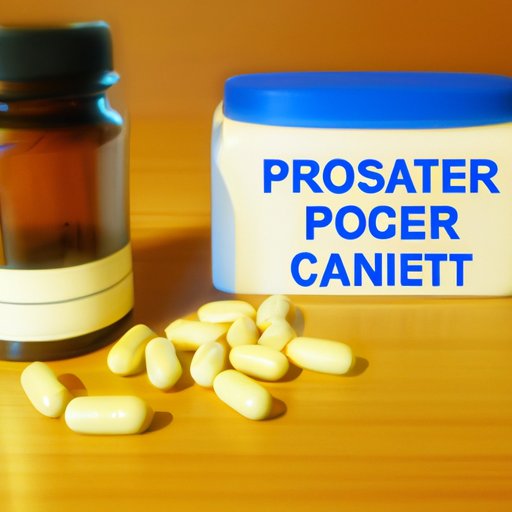
How to Reduce Your Risk of Prostate Cancer: 6 Effective Methods
Prostate cancer is one of the most common forms of cancer in men, with approximately 1 in 9 men being diagnosed with this disease in their lifetime. However, the good news is that there are effective ways to reduce your risk of developing prostate cancer. In this article, we will explore six different methods for preventing prostate cancer and offer practical tips for incorporating these methods into your daily life.
The Healthy Diet Method
Eating a healthy diet is essential for overall health and reducing the risk of many diseases, including prostate cancer. Research has shown that a diet rich in fruits, vegetables, whole grains, and healthy fats can help reduce the risk of prostate cancer. Some specific foods to incorporate into your diet include:
- Tomatoes and tomato-based products, which contain lycopene, a powerful antioxidant
- Cruciferous vegetables such as broccoli, cauliflower, and kale, which contain sulforaphane, a compound that may help fight cancer cells
- Fatty fish, such as salmon and tuna, which are high in omega-3 fatty acids
On the other hand, there are also foods that should be avoided or limited to reduce the risk of prostate cancer, such as red meat, processed meats, sugar, and saturated and trans fats. Studies have found that men who consume a diet high in these types of foods have an increased risk of prostate cancer.
The Physical Activity Method
Staying physically active is another way to reduce the risk of prostate cancer. Exercise not only helps maintain a healthy weight but has also been found to have anti-cancer properties. Some different types of exercise that may be beneficial include:
- Aerobic exercise such as running, biking, or swimming
- Strength training with weights or resistance bands
- High-intensity interval training (HIIT)
It’s important to note that even small amounts of physical activity can have significant benefits. Incorporating movement into your daily routine, such as taking the stairs instead of the elevator or going for a walk during lunch breaks, can make a big difference in reducing your risk of prostate cancer.
The Supplement Method
There have been several studies on supplements and vitamins that may help prevent prostate cancer. For example, selenium and vitamin E have been found to have anti-cancer properties. However, it’s essential to take supplements with caution and with a doctor’s guidance, as some studies have also shown that taking high doses of certain supplements may do more harm than good. Some suggestions for incorporating supplements into your diet safely include:
- Choosing high-quality supplements from trusted sources
- Taking supplements at recommended doses
- Not relying solely on supplements and instead focusing on a well-rounded diet and lifestyle
The Screening Method
Regular prostate cancer screenings, such as a prostate-specific antigen (PSA) test, are essential for early detection and treatment of prostate cancer. While there has been some controversy over the effectiveness of these screening tests, they remain a crucial part of prostate cancer prevention. Experts suggest that men talk to their doctors about when and how often they should be screened, particularly if they have a family history of prostate cancer or other risk factors.
The Toxin Avoidance Method
Exposure to certain toxins has been linked to an increased risk of prostate cancer. For example, pesticides, bisphenol A (BPA), and phthalates are all potential toxins that may cause harm. Reducing exposure to these toxins can be done through simple lifestyle changes such as avoiding plastic products and choosing organic or locally grown produce when possible. Additional changes that may help reduce exposure to harmful substances include:
- Using a water filter to reduce exposure to harmful chemicals like chlorine and lead
- Avoiding cigarette smoke and other sources of air pollution
- Limiting alcohol consumption
The Mindfulness Method
Stress has been linked to an increased risk of prostate cancer, among other health issues. Managing stress and developing mindfulness practices can help reduce this risk. Some suggestions for managing stress and cultivating mindfulness include:
- Meditation or mindfulness exercises
- Yoga or tai chi
- Breathing exercises or deep relaxation techniques
- Spending time in nature or engaging in other calming activities
Conclusion
In conclusion, there are several effective methods for reducing the risk of prostate cancer. Eating a healthy diet, staying physically active, taking supplements with caution, undergoing regular screenings, reducing exposure to toxins, and managing stress through mindfulness practices can all help prevent prostate cancer. We encourage men to take these steps to reduce their risk of this common and potentially life-threatening disease.
Reducing the risk of prostate cancer, many men may feel lost or hopeless. However, by taking simple and effective steps like the six methods described in this article, men can take active measures to protect their prostate health and overall wellbeing.




